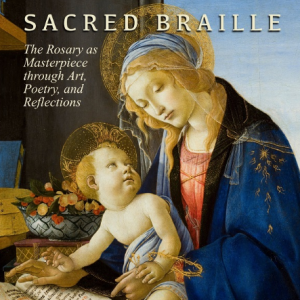Found in Loss
This weekend marks the feast of Saint Anthony of Padua, the patron saint for the recovery of lost items. How happy we are when what had been lost is found, when the purse turns up hidden beneath the car seat, or the missing person comes back home. In the words of the Prodigal Son’s father, “we had to celebrate and be glad, because this brother of yours was dead and is alive again; he was lost and is found.” It is good when prayers are answered and losses are recovered. But what about when something is just utterly lost?
The subject of losing things is a complex one, with many possible losses to face in this world: everything from keys to loves.
Regarding the loss of objects, my messenger bag was stolen on a long art history tour of Italy that I took in 2005. I had recently visited Padua, the city of St. Anthony, and was in Florence, preparing to leave for Assisi. I asked my friend to watch my bags as I headed to the hotel restroom. When I returned, my friend relayed that she had been distracted by a disagreement between two people in the lobby and when she looked up a man was running away with one of my bags – the small one that resembled a purse.
The poor robber didn’t end up with much – everything of worldly value was in my own coat. The bag he stole contained a notebook with drafts of poems I had been writing and various comforts for travel like chewing gum, a warm hat and lip balm. Of course, it was a different type of loss than misplacing something and not being able to remember where it went. I knew exactly where it had gone. Still, I wanted it but could not hope to find it and the symbolism was not “lost” on me. Here I was in transit between Padua, home of the patron saint of lost things, and Assisi, home of St. Francis, who renounced all worldly wealth for a life of poverty in God’s name.
Once in Assisi, the beauty of that city on a hill put the loss of my bag into perspective. As I stood at Assisi’s peak and watched a citrus-toned sunset tint the Tuscan countryside, I “willed the loss of knowing what comes next.” On the bus trip away from Assisi, I wrote the first draft of a villanelle, “On Watching the Sunset in Assisi,” in which the speaker wills loss as she renounces the often obsessive human curiosity to know what comes next.
In honor Saint Anthony’s feast day, today’s featured art is dedicated to the other essential part of the Anthonian equation (Loss + St. Anthony = Found): but first we must lose. The image is of the patron saint of lost things as imagined by El Greco. I like to think the image of the infant Jesus sitting (more between, than on the pages of the book) is symbolic of the saint “finding” the child in the book he is reading, through the wisdom imparted.
The great poem by Elizabeth Bishop famously views losing as a kind of art, something that trains a person for bigger and bigger losses as life goes on. Bishop’s speaker advises that one “lose something every day,” from keys to a watch, till eventually a city, a realm, a continent and a person are all lost to the speaker. Though it at first looks like a disaster, one can master the art of losing, Bishop teaches. If one lives mindful of Bishop’s poem, the irritating search for a missing wallet or child’s toy shapes a soul, a little at a time, in the forge of lost things and prepares one for the fire of lost places and people as time goes on. Lucinda Williams sings viscerally of loss in “I Lost It,” as she “knows she’ll never find another one to compare.” The listener could replace the titled “It” with anything. A heart, a lover, a feeling, a time of life… anything deeply valued could be the lost thing Williams laments.
There are two ways to handle the double-edge of loss: lamentation and learning. Whether the sigh over a missing credit card or the tears shed over a departed friend, loss brings sorrow and an opportunity to perfect the art of loss until we can willingly give up control, like a Tibetan monk destroying the beautiful mandala he has painted in sand. Then, maybe, we can renounce with the grace of St. Ignatius of Loyola’s “Suscipe” prayer:
“Take, Lord, and receive all my liberty,
my memory, my understanding,
and my entire will,
All I have and call my own.
You have given all to me.
To you, Lord, I return it.
Everything is yours; do with it what you will.
Give me only your love and your grace,
that is enough for me.”
Sometimes we find what we lost and we celebrate. And sometimes we celebrate a win earned from losses bravely endured.


